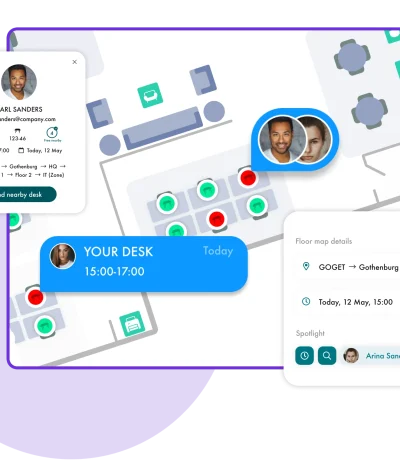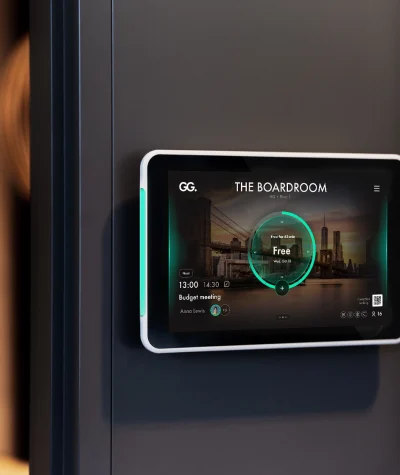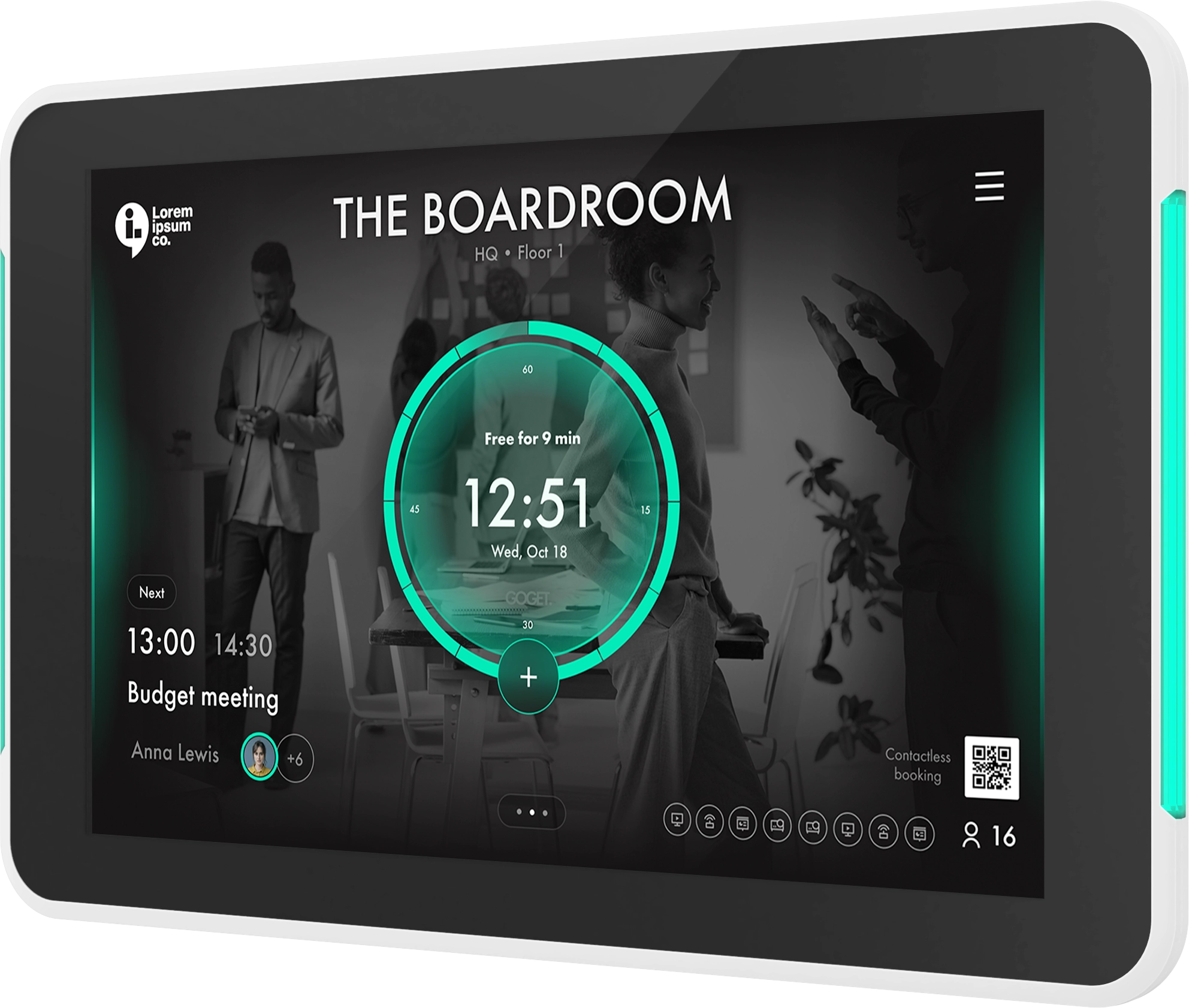Before the pandemic, the traditional office setup comprised one dedicated desk per person. This may have been in a private office, a shared space, a cubicle, or an open bullpen. However, remote working turned this on its head.
Employees loved the idea of switching eight mandatory hours in the office to working from the comfort of their homes. And employers discovered their teams are just as productive when working from anywhere.
Flexibility, better employee experience, and consistent business performance are a few benefits of remote working. But there is one major downside – the forest of empty desks in the office.
In this blog, we’ll tell you how to harness top-class tech to make on-site working more desirable for your team, share our tips for desk hoteling, and more!
Desk Hoteling vs Hot Desking
Many assume desk hoteling and hot desking are the same things, but there are slight differences between the two:
Desk Hoteling – The ability to “check in and out” of a desk space via desk booking software – much like you would do if you were visiting a hotel.
Hot Desking – This is a desk space that isn’t assigned to anyone. It can only be used on a first-come, first-serve basis.
Four Benefits of Desk Hoteling
Cost Savings
Looking to cut back on costs within your business? Managing your desks with savvy desk management software will help you spend your money more efficiently. For example, you can monitor the occupancy of desks over a set period. If you find your hybrid teams aren’t making as much use of the desks as you’d hoped, perhaps you can cut down the size of your workspace. This will dramatically reduce your office rent, as well as save on the maintenance costs of your on-site tech, electricity, and more.- Improved Collaboration
People working remotely in the US say they spend 48% less time collaborating than they would if they were in the office. And this statistic likely applies all over the globe.
Simply allowing employees to book a desk space in the office will improve collaboration for the better. For example, if several coworkers are working on a project together, they can book a group of desks within the same area. This allows them to communicate face-to-face and cuts out the frustrating setbacks of collaborating digitally, such as poor connection and audio issues that prevent teams from connecting efficiently.
Efficiency
Unlike hot desking, whereby a desk space isn’t guaranteed upon arrival to the office, desk hoteling ensures employees have a dedicated space for an allotted time. This means employees are likely to make better use of the workspace, helping businesses to make more efficient use of their offices and avoid a forest of empty desks.- Employee Satisfaction
Despite the desire of employers to maintain control of their employees, giving workers freedom is great for employee satisfaction. For instance, providing the option to book a desk in the office or spend the day working at home helps them to create their own workday. When they’re working in ways most effective to them, they’re more likely to find enjoyment in their work, which will positively affect their motivation and productivity.
Desk Hoteling Prep: How to Estimate the Amount of Office Space Required
Step 1: Identify Metrics that Matter
Here are some examples of important metrics:
- Office Size
How much square footage will you need? HSE UK suggests 11 cubic metres per employee is sufficient. - Lease Terms
Are you hoping to expand your team significantly within the next few years? You should ensure your lease term doesn’t hold you back. For example, you may be tied into a 5-year lease, meaning you have limited space if all your employees come into the office on the same day. - Usage Information
Evaluate how much of the office space will be used. For example, will employees book out meeting rooms or would they feel more comfortable using a communal space? How many employees are likely to visit the office regularly? - Running Costs
Looking at the figures in your business, how much can you spare on office running costs? This alone will determine how much space you can afford.
Step 2: Understand Relationships Between KPIs
- Size VS Running Costs
Got a tight budget? It’s worth evaluating whether you’re getting a fair deal for your office space regarding the size and accompanying running costs. For example, are you paying eye-watering rental fees simply because of the location? How much are you paying for basic utilities such as electricity, heating, and water? Do these numbers seem justifiable for the size of your office? - Size VS Utilisation
Be as realistic as possible when choosing an office space for your business. Do you need multiple meeting rooms for your small team? Do you need an overwhelmingly large open-plan area? Is it really necessary to have a lineup of private offices despite encouraging collaboration and teamwork? These little luxuries are a good idea in theory, but if you don’t have the staff to make use of the space, or the space doesn’t align with your company vision, it’s simply a waste of money. - Headcount VS Running Costs
A hybrid workplace can be unpredictable, as many employees will switch between remote and on-site work. So, it’s wise to get a rough estimation of how many people plan on attending the office frequently before securing a space. One way you could do this is by sending out a quick survey to all employees. This will help you establish whether the running costs are justifiable for the number of employees planning to be on-site. - Lease Information VS Running Costs
Study your lease information before securing an office space. Then, estimate the total running costs for the duration of that lease. Can you afford to keep the office running?
Step 3: Forecast Future Requirements
What does the future hold for your business? Perhaps you plan on changing the way your teams work together or you’re hoping to recruit more employees. It’s best to prepare in advance to ensure you’re equipped with the right office space for your future needs.
Desk Hoteling Solutions: Supporting Your Hybrid Workplace with Proven Tech
Whether desk hoteling or hot desking, GoGet’s desk booking software helps businesses avoid a forest of empty desks.
Employees simply select the room they wish to work in and find an available desk using the on-screen map. To simplify the hybrid workplace, this can be done from home or on their commute, helping employees get straight to work when they enter the office.
Booking Kiosk Pro also helps management and leadership teams to establish who will be in the office on which days – a saviour for companies with hundreds of hybrid workers.
Visit the GoGet website to change the future of your hybrid workplace with our desk management software.



